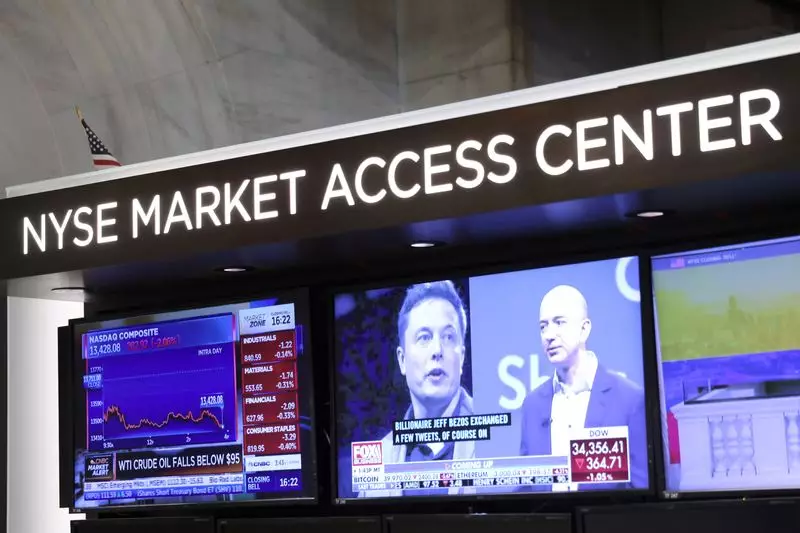In the ever-evolving landscape of space exploration, the rivalry between Jeff Bezos’s Blue Origin and Elon Musk’s SpaceX has captivated the public’s imagination. As both entrepreneurs push the boundaries of technology and ambition, their interactions—especially in light of political shifts—reflect the complex interplay between private space companies and government agendas. Following the election of Donald Trump as U.S. President, both figures have found themselves scrutinizing one another’s strategies while navigating their own paths in the increasingly competitive aerospace industry.
Jeff Bezos recently articulated his belief that Elon Musk’s close relationship with Donald Trump would not undermine Blue Origin’s endeavors. In a candid interview conducted in Cape Canaveral, where he attended the inaugural launch of Blue Origin’s New Glenn rocket, Bezos expressed a sense of optimism regarding the future space agenda under Trump’s administration. He noted, “Elon has been very clear that he’s doing this for the public interest and not for his personal gain.” This statement hints at a mutual respect between the two, despite the cutthroat nature of their business rivalry.
The New Glenn rocket symbolizes Blue Origin’s serious entry into the satellite launch market, an area SpaceX has dominated with its competitive pricing and reliability. Bezos’s confidence in the untapped potential of his company suggests that he is not deterred by SpaceX’s achievements thus far and believes there is still room for innovation and competition in the space arena.
Conversely, Musk’s significant financial contributions to Trump’s election campaign may position him favorably regarding governmental support for SpaceX. Nevertheless, his recent statements advocating for direct missions to Mars instead of a lunar first approach have raised eyebrows within the industry. Such a shift could lead to substantial changes in NASA’s exploration program, potentially sidelining established lunar objectives. These assertions spark debate about the balance between ambition and practicality, as both Musk and Bezos argue for robust lunar and Martian exploration.
During a discussion about NASA’s future, Bezos emphasized the importance of continuity: “What we shouldn’t do is start and stop things,” he stated. His vision includes simultaneously advancing both lunar and Martian missions, suggesting that a balanced approach may be key to sustainable exploration strategies.
As Bezos maintains a constructive outlook on the interplay between his company and SpaceX, he acknowledges the significance of political dynamics in shaping the future of space exploration. Trump’s forthcoming term may usher in a reorganization of NASA’s priorities, potentially favoring missions that align with Musk’s visionary proposals. Moreover, as Bezos continues to invest heavily in his space endeavors—exemplified by Blue Origin’s $3 billion contract with NASA—his resolve to maintain a competitive edge remains palpable.
As the spacecraft industry anticipates this new chapter, the strategic moves from both Bezos and Musk will likely define the next era of space exploration. Their rivalry and collaboration dynamics will showcase the interplay between private enterprises and governmental support, ultimately determining humanity’s future in space.
The juxtaposition of Musk’s bravado and Bezos’s calculated optimism lays the groundwork for an exciting and unpredictable future in aerospace. With monumental projects on the horizon, the competitive spirit of these two visionaries may not only propel their companies forward but also inspire a new generation of exploration that captivates and unites the world.

